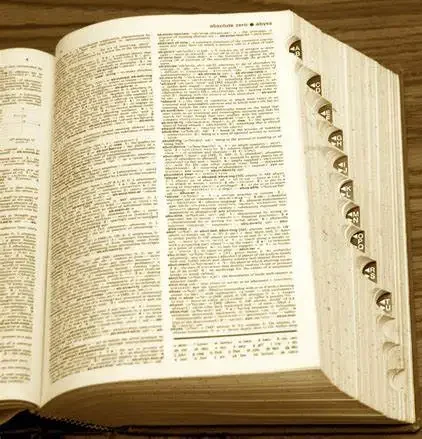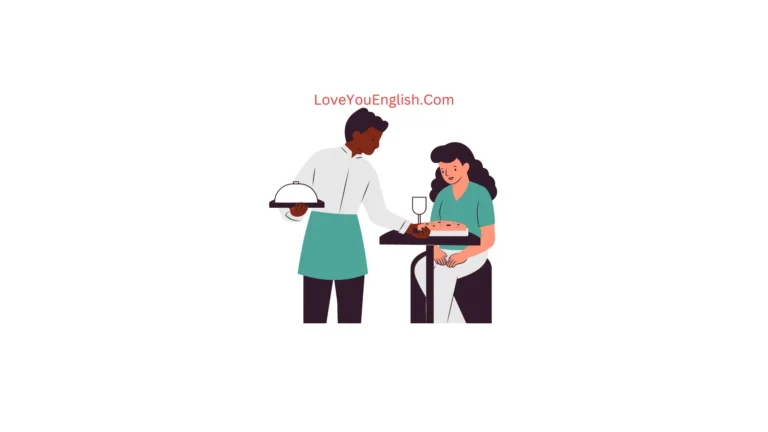How to Use an English Dictionary to Learn English
How to Use an English Dictionary to Learn English is a practical guide for students and English learners who want to improve their vocabulary, pronunciation, and understanding of words. Many learners use a dictionary only to check meanings, but a good English dictionary offers much more. It helps you learn correct pronunciation, word forms, parts of speech, example sentences, collocations, and usage in real contexts. This topic explains how to use an English dictionary effectively, whether it is a printed dictionary or an online one. Written in simple and easy English, it is ideal for beginners, school students, and ESL learners. Learning to use a dictionary properly can speed up language learning, reduce mistakes, and help you become more confident and independent in reading, writing, speaking, and understanding English.
1. Why You Should Use a Dictionary to Learn English
First, let’s talk about why a dictionary is important when learning English.
A dictionary can help you:
- Learn new words: Every time you look up a word, you add a new word to your vocabulary.
- Understand meanings: If you don’t know what a word means, a dictionary will explain it.
- Improve pronunciation: Most dictionaries show how words are pronounced, helping you speak more clearly.
- Learn how to use words: A dictionary shows how words are used in sentences, so you can use them correctly.
- Learn spelling: A dictionary helps you understand how words are spelled, which is very important when writing.
Now that you know how helpful a dictionary is, let’s look at the steps to use it effectively.
2. Choosing the Right Dictionary
Not all dictionaries are the same, so choosing the right one for you is important.
There are two main types of dictionaries:
a. Printed Dictionaries
Printed dictionaries are traditional books.
They give you lots of information about each word, including:
- The word’s definition.
- How the word is pronounced.
- Examples of how the word is used in sentences.
Some popular printed dictionaries are Oxford English Dictionary and Cambridge English Dictionary. These dictionaries are very detailed and helpful.
b. Online Dictionaries
Online dictionaries are available on websites or apps.
Some of the most popular online dictionaries are:
- Cambridge Dictionary (www.cambridge.org/dictionary)
- Oxford English Dictionary (www.oed.com)
- Merriam-Webster (www.merriam-webster.com)
Online dictionaries are easy to use and often have additional features like:
- Audio pronunciation: You can hear how words are pronounced.
- Examples of usage: You can see how the word is used in real sentences.
- Word of the day: Many online dictionaries show a new word every day, helping you learn new vocabulary regularly.
Whether you choose a printed or online dictionary depends on your preference, but online dictionaries are usually more convenient because you can use them anywhere.
3. Understanding the Dictionary Entry
Each word in the dictionary has an entry that explains its meaning, pronunciation, and usage.
Let’s break down what you’ll find in a dictionary entry.
a. Word: The word is written in bold letters. For example, the word happy.
b. Pronunciation: Dictionaries use special symbols to show how a word is pronounced.
For example, the word happy is pronounced /ˈhæpi/. These symbols may look difficult at first, but with time, you will get used to them.
c. Part of Speech: The dictionary tells you whether the word is a noun, verb, adjective, etc.
For example, happy is an adjective. A verb would be run, and a noun would be book.
d. Definition: This is the meaning of the word.
For example, happy means “feeling good or pleased.”
e. Examples: Most dictionary entries have example sentences to show how the word is used in context.
For example:
- She felt happy after finishing the test.
- They are always happy when they meet their friends.
f. Synonyms and Antonyms: Some dictionaries list words that have the same meaning (synonyms) or opposite meanings (antonyms). This can help you learn more words related to the one you’re looking up.
g. Word Origins (Etymology): Some dictionaries also explain where the word comes from. For example, happy comes from the Old English word hap, meaning “chance or luck.”
4. Steps to Use a Dictionary Effectively
Now that you know what to look for in a dictionary entry, here are some steps to help you use it effectively.
Step 1: Look Up the Word You Don’t Know
The first step is to find the word you don’t understand. If it’s a long word, look at the first letter and find it in the dictionary. Remember, dictionaries are arranged in alphabetical order, so finding words is easy.
If you are using a printed dictionary, you may need to flip through the pages. If you are using an online dictionary, simply type the word into the search bar.
Step 2: Check the Meaning
Once you find the word, read its meaning. Try to understand it by looking at the definition. If the definition uses words you don’t know, look those up too! This will help you learn even more words.
Step 3: Check the Pronunciation
After you understand the meaning, check the pronunciation. Some online dictionaries have audio clips that let you hear how the word is said. Try repeating the word out loud to practice your pronunciation.
Step 4: Read the Example Sentences
Reading example sentences will show you how the word is used in real life. This will help you understand how to use the word correctly. Pay attention to how the word fits into the sentence. Is it used as a noun, verb, or adjective?
Step 5: Look for Synonyms and Antonyms
Many dictionaries list synonyms and antonyms for the word. Synonyms are words that mean the same thing, and antonyms are words that mean the opposite. Learning these will help you expand your vocabulary.
For example, for the word happy, a synonym could be joyful, and an antonym could be sad.
Step 6: Use the Word in Your Own Sentences
After you’ve learned the word, try to use it in your own sentences. This will help you remember the word and understand it better. The more you practice, the more comfortable you will be using new words.
5. Using a Dictionary for Vocabulary Building
To improve your vocabulary, it’s important to learn new words regularly. Here’s how you can use a dictionary to build your vocabulary:
a. Read Every Day
Reading books, articles, or anything in English can expose you to new words. Whenever you come across a word you don’t know, look it up in the dictionary. Try to use the word in sentences of your own.
b. Create a Word List
You can create a word list with new words you learn. Write down the word, its meaning, and an example sentence. Review your list every week to remember the words better.
c. Learn Word Families
A word family includes words that come from the same root. For example, the word happy has related words like happiness (noun), happily (adverb), and unhappy (opposite). Learning word families will help you understand more words and how they’re used.
d. Learn Common Phrases
A dictionary can also show you common phrases or collocations (words that go together). For example, the dictionary may show that make a decision is a common phrase, not do a decision. Learning these phrases will make your English sound more natural.
6. Using a Dictionary for Grammar Help
A dictionary can also help you with grammar. Here’s how:
a. Understanding Parts of Speech
When you look up a word, the dictionary will tell you whether it’s a noun, verb, adjective, or adverb. Knowing the part of speech helps you use the word correctly in a sentence.
For example, run is a verb, but runner is a noun. If you don’t know the difference, look it up!
b. Learning Word Forms
Dictionaries show you different forms of words. For example, the verb run can become ran (past tense) or running (present participle). If you are unsure about these forms, check the dictionary for more information.
c. Phrasal Verbs and Idioms
English has many phrasal verbs (like run out of) and idioms (like break the ice). A good dictionary will explain these expressions and how to use them. You can add these to your vocabulary list to sound more like a native speaker.
7. Practice Makes Perfect
The more you use a dictionary, the better you will get at learning new words and improving your English. Here are some tips for practicing:
- Use the dictionary every day: Make it a habit to look up a new word every day.
- Practice speaking: Try using new words in conversation with friends or classmates.
- Write regularly: Write sentences or short stories using new words to improve your writing skills.
8. Conclusion
Using an English dictionary is one of the best ways to improve your language skills.
By looking up words, learning their meanings, practicing pronunciation, and using them in sentences, you’ll quickly expand your vocabulary.
Remember, consistency is key.
Make using a dictionary part of your daily learning routine, and you’ll see improvement in no time!
So, grab a dictionary, start learning, and watch your English skills grow!
You may also like these English learning articles:
- English Conversations at a Train Ticket Counter
- English Dialogue: Ordering Takeout vs. Cooking at Home
- English Dialogue: Getting Ready for a Special Occasion
- English Dialogue: Morning Routine Habits
- Weekend Chores – A Natural Conversation Between Two Friends






